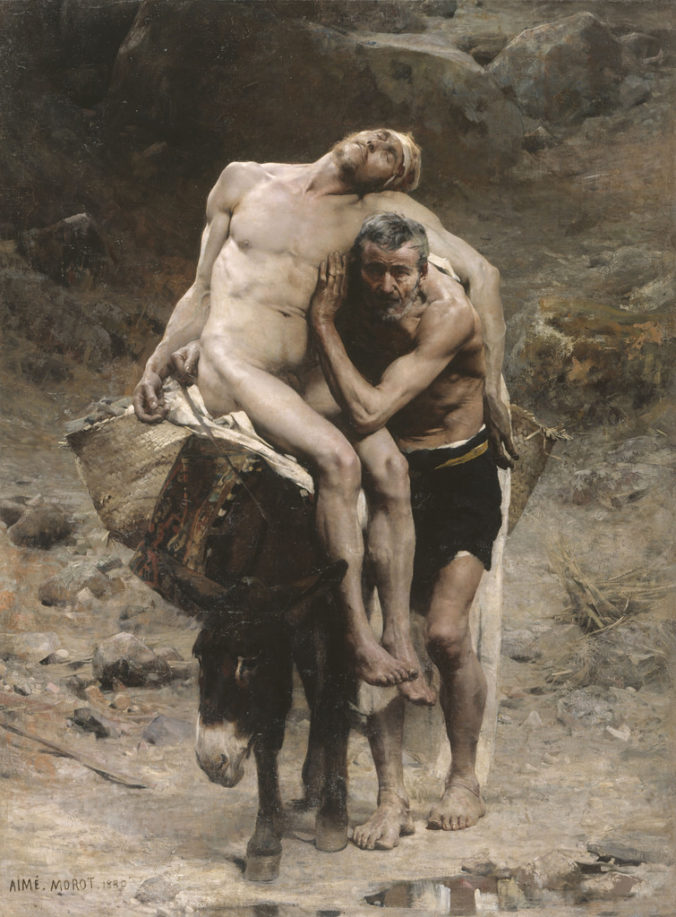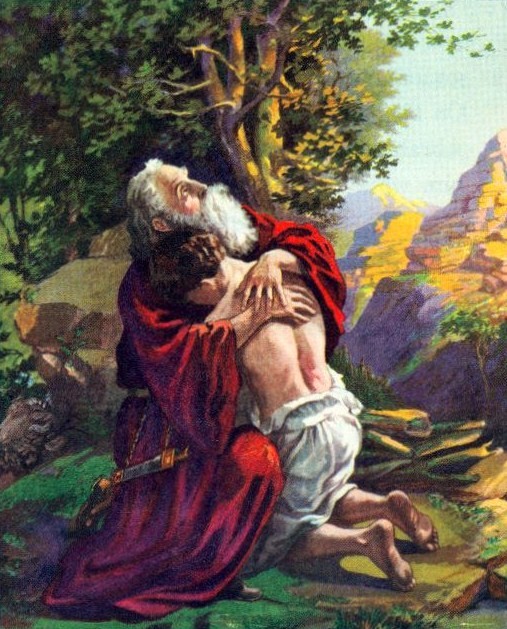Psalm 148 is a song of praise to God for everything that has been created. That, if anything, is enough reason for people of faith to care for the environment. But it goes a lot deeper than that.
With the United States deciding to pull out of the Paris Climate Agreement this week, many Christians are again debating whether or not we should care about the planet. I really thought we had gone past this as Christians. The fact that we still have to sit here and debate with some people whether or not we should even care about the planet is incredibly frustrating.
I first wrote this article back in 2006 for a talk I gave at World Vision on this topic. While many Christians have no problem with the need to care for the Earth, they struggle to explain exactly why, apart from a general acceptance that we should because God made it.
So, given the US decision to withdraw from the Paris Agreement and that today is World Environment Day, here is a slightly updated rewrite of the theological background for why it is an obligation for people of faith to care for the planet.
While there are still people who disagree over the extent of climate change and whether or not it is happening as a result of human activity, more and more people are accepting that it is a current fact and that human actions since the beginning of the Industrial Revolution are playing a major part.
However, we still have a lot of work to do. While many evangelical leaders in the US have spoken out about the moral obligation to care for the earth that God made, there remain Christians in the US and Australia today who are advising President Trump that policies that look after the environment are a waste of time. Their reason for that advice is that God will take care of it and it is a threat to God’s omnipotence. And so we now have one of the biggest carbon-emitting nations on the planet telling the rest of the world to go to hell.
The fact is that this God we believe in cares deeply for the planet we get to live on. Throughout the Bible there is a common thread of God’s concern for the planet, and from this comes our responsibility and privilege to love what God loves.
Mark Brett from Whitley College in Melbourne has said that, “to reduce the complexity of the many references in the Bible that call us to care for the planet, people have often narrowed creation theology down to the key point which serves human interests: God said ‘subdue the earth’, so let’s get on with it”. Brett goes on to say that “both humans and animals are made from the earth, and in this sense we all belong to the same lineage system or ‘earth community’”. From the dust we were made. Genesis tells us that.
It’s interesting to note that Genesis also tells us that God told all species to be fruitful and multiply, so one of our responsibilities is to allow the other species to do just that.
So let’s have a brief look at what Genesis actually says. Ched Myers has said that,
“The first creation account (Genesis 1:1-2:4a) is structured around the Creator’s repeated pronouncements that each layer of the world is “fantastic”. After day 1, he made the universe, and he said it was very good. Day 2 he made the sky and it was very good. Day 3…and it was very good and so it goes on with everything that God makes. The Hebrew word “tov” signifies intense delight. God says this way before humans arrive on the scene, showing that God thought this planet was pretty amazing when we weren’t even here yet. The environment is part of God’s creation which He said was very good.”
Then God goes on to make us, with the world as our habitat. As Myers goes on to say, “humans have received the world as a gift from the Creator and must never mistake it for a possession (Leviticus 25:23)”.
After humans are created, God tells us what our vocation is. The human vocation is summarised in Genesis 2:15: The human being is to “till and keep” (‘abad and shamar). The Hebrew word for tend (Hebrew: ‘abad) means “to work or serve,” and so, referring to the ground or a garden, it can be defined as “to till or cultivate”. It implies adornment, embellishment, and improvement.
The Hebrew word for keep (‘shamar’) means “to exercise great care over.” In the context of Genesis 2:15, it expresses God’s wish that humankind, “take care of,” “guard,” or “watch over” the earth. What we’re noticing is that Genesis 1 to 2, the very first words of God that we have, are a sharp contrast from the once-prevalent and still persistent interpretation of “dominion” that many Christians use to sanction environmental destruction in the name of progress. The exercise of dominion means that we are to exercise dominion with mercy, justice, and compassion – as servants of creation, and as Jesus was the ultimate servant leader, we are to follow His example in living like this.
Jesus also said that our lives do not consist in the abundance of our possessions. As a result, life works best when we resist the allure of wastefulness and overconsumption by making personal lifestyle choices that express humility, patience, self-restraint and frugality.
Put simply, care for the earth fulfills the Great Commandments to love God and love what God loves. Jesus said the greatest commandment is to love God with all our heart, soul, mind and strength and to love our neighbour as ourselves. Do unto others. As a group called Creation Care says, “it’s hardly showing love to a child with asthma when you’re filling her lungs with pollution”.
Another reason that God calls us to care for the planet is because environmental degradation hurts the poor the most. Let’s get this straight: climate change is a poverty issue. Care for the earth is an expression of our love for God and, as an extension of that, our love for the poor.
Despite our call for relationship with the environment as a Biblical mandate, there is also the danger of doing what many environmentalists do and going to the other extreme of idolising the creation instead of the creator. The apostle Paul, in his letter to the Romans, said that God’s handiwork is seen in all of creation. Paul saw in creation the evidence of God at work, in the beauty and order of it all, and how it all fits together.
In recent decades scientists have been discovering that the laws of physics seem to be fine-tuned for the existence of complex life. All the evidence suggests that our planet is not just a meaningless “lonely speck in the great enveloping cosmic dark” as the famous astronomer Carl Sagan once said.
The Earth is situated in just the right location in our galaxy; that we’re in a planetary system with giant planets that can shield the other planets from too many comet impacts; that we’re orbiting the right kind of star that’s not too cool or too hot; that the earth has an atmosphere that has enough oxygen to allow for complex organisms to survive; that has enough water and enough continents that allow for the diversity of life, and an active biodiversity that you need to support complex creatures such as ourselves. All of these factors give the direct impression that something amazing has taken place, that this did not just happen by a series of chance events.
Scientists are also discovering that the universe itself seems to be fine-tuned for life. Currently there are about 20 known different physical laws and forces that hold the universe together and allow it to sustain life; and if just one of them was altered by a tiny fraction, the universe would not exist. The universe, and this planet, are precious.
Scientists are also telling us about the interdependence of life on the planet. David Suzuki describes how, if all of humanity disappeared off the face of the earth, the rest of life would benefit enormously. The forests would gradually grow back, and relative stability would return to the ecosystems that control global temperature and the atmosphere. The fish in the oceans would recover and most endangered species would slowly come back. On the other hand, for example, if all species of ants disappeared, the results would be close to catastrophic. There would be major extinctions of other species and probably partial collapse of some ecosystems. The functions of the creatures living in the air we breathe, and beneath our feet, all work together to keep us alive.
If we do not consider the effects of a changing climate, we are not working with the poor; we are actually working against the poor. Let me say that again: if we are not considering the effects of environmental degradation, we are working against the poor. The late Ross Langmead said that “the transforming power of the gospel is not just spiritual, and not just social and economic, but also cosmic and environmental. The gospel is bigger than many of us thought!”
Ecology is increasingly teaching us that everything is related. A theme running through the Old Testament is that a distortion of right relationships affects us, affects our societies and affects our environment. As Romans 8 tells us, the creation is groaning and awaiting the setting right of all relationships in the universe.
There is simply no question that doing what we can to care about climate change is our responsibility as Christians, just as much as caring for the poor, no more and no less. And as affluent Christians here in Australia, we have the resources to make a real difference.
Jesus said that from everyone to whom much has been given, much will be required. We have been given much here in Australia. It is incumbent on our generation to love what God loves.


 Why do so many Christians care about alleviating poverty and working for justice in the world? Put simply, what is their theology, and does it really matter?
Why do so many Christians care about alleviating poverty and working for justice in the world? Put simply, what is their theology, and does it really matter?





